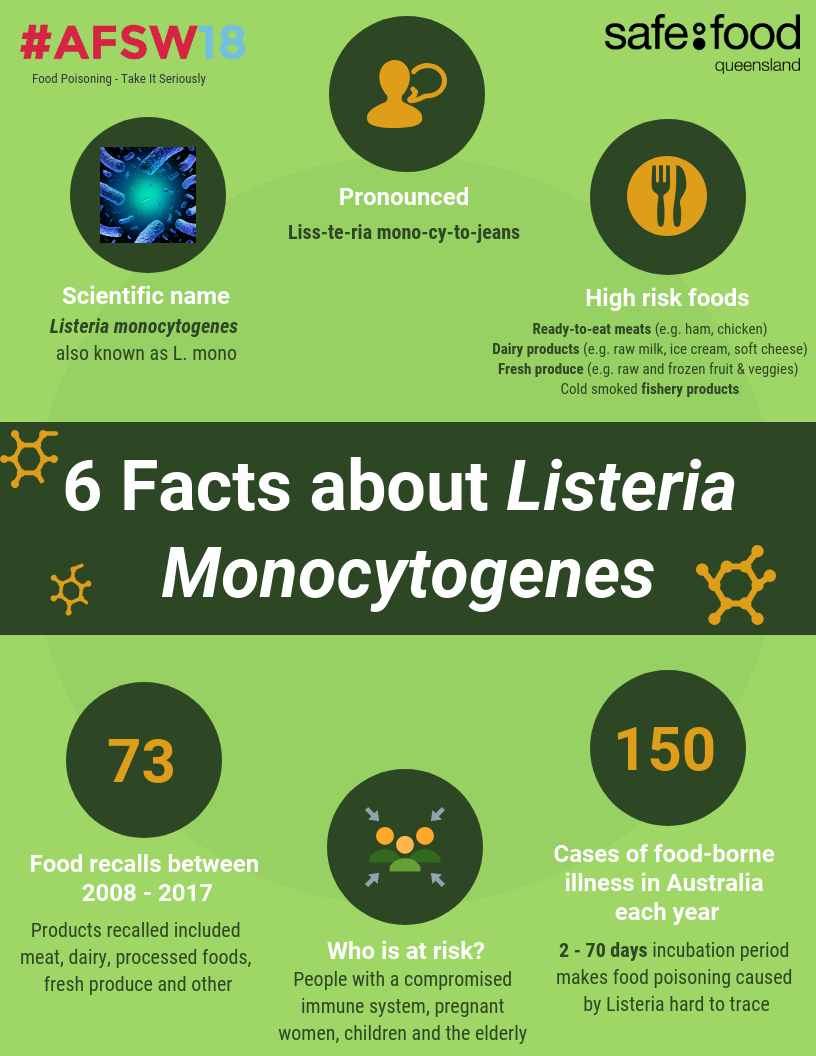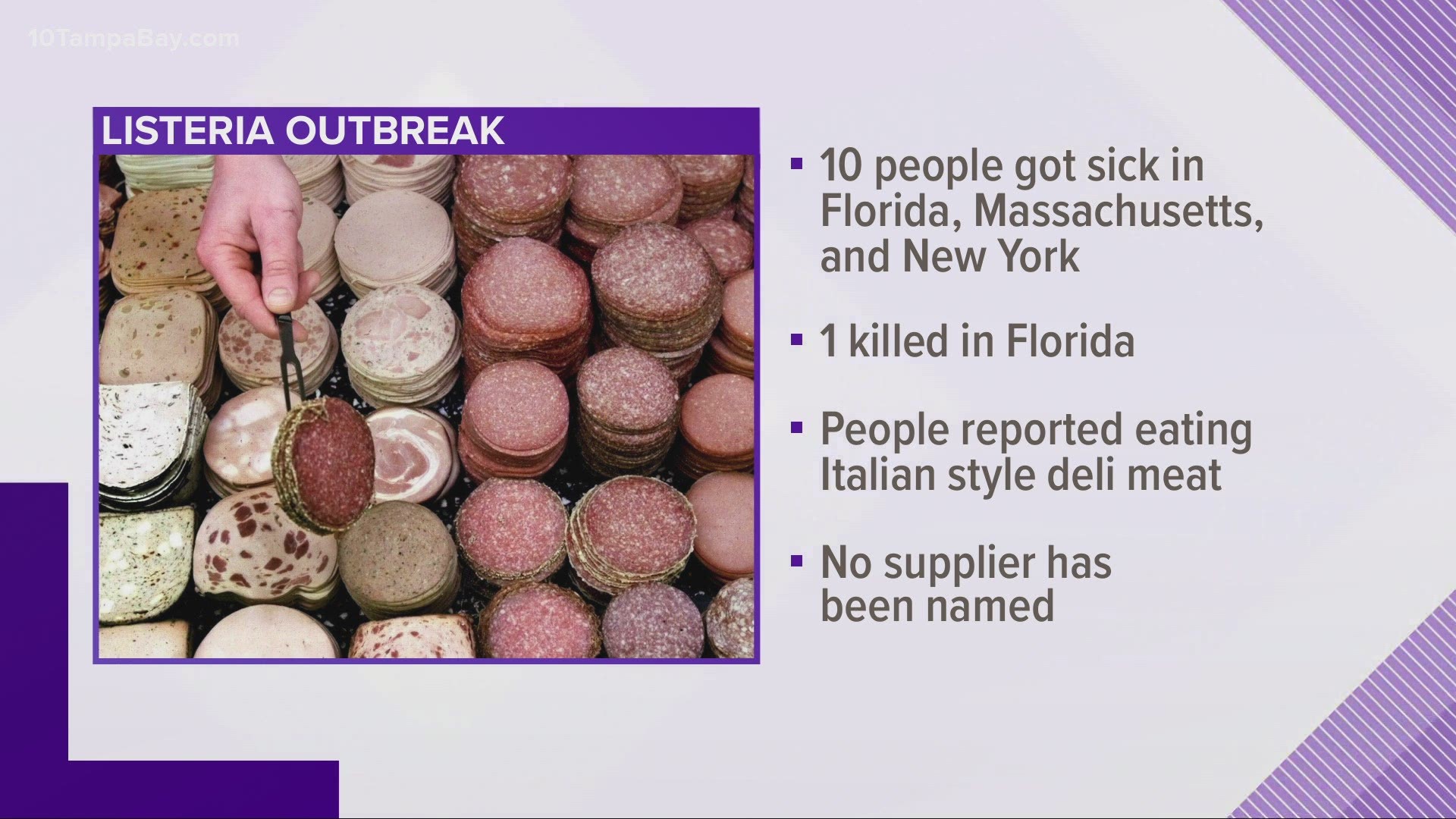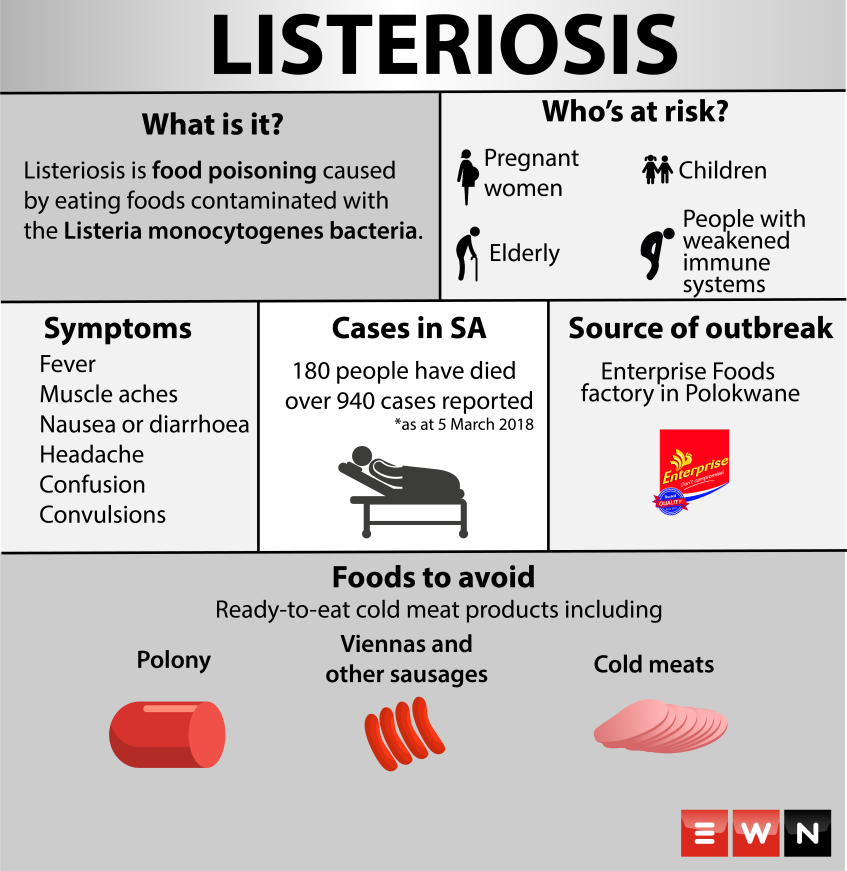What if your favorite comfort food became a source of potential danger? The "listeria ramen 2024" incident serves as a stark reminder that even seemingly innocuous food items can pose significant health risks.
"Listeria ramen 2024" designates a cluster of food poisoning cases traced back to Listeria monocytogenes contamination in various ramen products during the specified year. This unfortunate event triggered widespread recalls of multiple ramen noodle brands across several countries, raising serious concerns about food safety protocols. The Listeria monocytogenes bacteria are particularly dangerous because they can cause severe infections, especially among vulnerable demographics such as pregnant women, elderly individuals, and those with compromised immune systems.
The incident underscores the vital role of stringent food safety regulations and the continuous need for comprehensive monitoring and rigorous testing of food products to effectively prevent future outbreaks. The ramifications of "listeria ramen 2024" are still being felt, prompting a re-evaluation of food handling and production practices worldwide.
Incident Name Listeria Ramen 2024 Cause of Incident Contamination by Listeria monocytogenes bacteria Date of Incident 2024 Location(s) Affected Multiple countries (specific countries not consistently specified in initial reports) Products Affected Various brands of ramen noodles Health Risks Listeriosis (severe food poisoning), especially dangerous for pregnant women, the elderly, and those with weakened immune systems Symptoms of Infection Fever, muscle aches, nausea, vomiting, diarrhea; in severe cases, infection can spread to the bloodstream or central nervous system Actions Taken Product recalls, investigations by food safety authorities, review and strengthening of food safety regulations Lessons Learned Importance of food safety regulations, effective product recalls, thorough outbreak investigations, international collaboration, and continued vigilance Further Information FDA Outbreaks of Foodborne Illness
In 2024, the food industry faced a significant challenge when multiple brands of ramen noodles were found to be contaminated with the Listeria monocytogenes bacteria. This contamination led to a widespread outbreak, resulting in numerous reported illnesses and hospitalizations across different regions.
- Contamination:Listeria monocytogenes, the culprit in this outbreak, is a virulent bacterium known to cause severe food poisoning, with particularly heightened risks for individuals in vulnerable health categories.
- Outbreak: The scale of the outbreak was considerable, spanning several countries and implicating multiple brands of ramen noodles, thereby amplifying the potential for widespread exposure and health consequences.
- Symptoms: The symptoms of a Listeria infection are often flu-like, and can include fever, muscle aches, nausea, vomiting, and diarrhea. These symptoms can manifest anywhere from a few days to several weeks after consuming contaminated food.
- Prevention: Preventing Listeria infection primarily involves ensuring that food is cooked thoroughly to kill the bacteria and adhering to stringent food handling practices to avoid contamination.
- Recall: In response to the outbreak, manufacturers and retailers initiated a comprehensive recall of all affected ramen products, an essential step to prevent further consumption of contaminated items and reduce the risk of additional illnesses.
- Investigation: Food safety authorities launched a detailed investigation to pinpoint the exact source of the contamination, aiming to prevent similar incidents from occurring in the future through enhanced safety protocols.
- Aftermath: The "listeria ramen 2024" incident not only caused immediate health concerns but also prompted a broader re-evaluation of existing food safety regulations, calling for increased vigilance to safeguard public health against future outbreaks.
The "listeria ramen 2024" incident underscores the critical importance of maintaining food safety standards and ensuring that consumers are fully aware of the potential risks associated with foodborne illnesses. The incident also highlights the indispensable role of food safety authorities in diligently monitoring and rigorously regulating the food supply chain to effectively protect public health.
The detection of Listeria monocytogenes in food, particularly in the ramen products implicated in the "listeria ramen 2024" outbreak, is a significant public health threat. As a bacterium capable of causing serious foodborne illness, its presence demands immediate and comprehensive action. The bacterium poses the greatest risk to specific populations, including pregnant women, whose infections can lead to miscarriages, stillbirths, or severe illness in newborns; the elderly, who are more likely to develop invasive infections; and individuals with weakened immune systems, such as those undergoing chemotherapy or living with HIV/AIDS.
- Don Carpenter Pittsburgh The Man Who Shaped The Steel Citys Heart
- Brooke Bender The Untold Story Of A Digital Phenomenon
The symptoms of Listeria infection can vary, but commonly include fever, muscle aches, nausea, vomiting, and diarrhea. In more severe cases, the infection can escalate to meningitis, encephalitis, or septicemia, leading to life-threatening conditions. The "listeria ramen 2024" incident serves as a somber reminder of the potential for severe health consequences and the imperative to enforce stringent food safety measures.
This incident underscores the critical need for food safety regulations and continuous, rigorous monitoring and testing of food products. These measures are essential to prevent future outbreaks and protect public health. Additionally, the "listeria ramen 2024" event reinforces the responsibility of consumers to practice safe food handling and preparation techniques, reducing the risk of Listeria infection in their homes.
Key insights derived from the "listeria ramen 2024" incident include:
- Listeria monocytogenes is a formidable pathogen capable of causing severe illness and potentially death, especially in vulnerable populations.
- Pregnant women, the elderly, and individuals with weakened immune systems face a disproportionately higher risk of contracting Listeria infection.
- Robust food safety regulations and continuous monitoring are indispensable for preventing Listeria outbreaks and safeguarding public health.
- Consumers play a pivotal role in mitigating the risk of Listeria infection by adopting and consistently practicing safe food handling and cooking techniques.
The "listeria ramen 2024" incident was not merely an isolated event, but rather a multi-national crisis involving an outbreak of Listeria monocytogenes food poisoning linked directly to the consumption of contaminated ramen noodles. The repercussions were extensive, as the outbreak impacted several countries and implicated multiple brands of ramen noodles. This led to widespread product recalls and heightened health concerns among consumers and regulatory bodies alike.
- Geographic Spread: The outbreaks reach spanned several countries, revealing the potential for contaminated food products to be distributed widely and underscoring the necessity for international cooperation in maintaining food safety standards.
- Product Diversity: With multiple brands of ramen noodles affected, the incident highlighted the risk of contamination occurring at various stages of the production and distribution processes, necessitating vigilance across the entire supply chain.
- Public Health Impact: The outbreak resulted in numerous illnesses and hospitalizations, emphasizing the serious public health implications of foodborne disease outbreaks and the importance of swift and effective response measures.
- Regulatory Response: Food safety authorities responded promptly by initiating thorough investigations to identify the source of contamination and implementing product recalls to prevent further exposure and illness, showcasing the critical role of regulatory oversight in protecting public health.
The "listeria ramen 2024" incident serves as a potent reminder of the importance of maintaining robust food safety systems to effectively prevent and manage foodborne outbreaks. It also underscores the essential role of consumer awareness regarding the potential risks associated with foodborne illnesses, promoting the adoption of safe food handling and cooking practices to minimize those risks.
In the wake of the "listeria ramen 2024" incident, understanding the specific symptoms of Listeria infection is of paramount importance. These symptoms can vary widely in severity, ranging from mild discomfort to life-threatening conditions. Key symptoms to watch for include:
- Fever: An elevated body temperature is a common indicator of Listeria infection, signaling the body's immune response to combat the bacteria.
- Muscle Aches: Diffuse muscle pain and aches can also manifest as symptoms of Listeria infection, often resulting from the bodys inflammatory reaction to the bacteria.
- Nausea: Feelings of nausea are frequently reported by those infected with Listeria, attributed to the toxins produced by the bacteria disrupting normal digestive function.
- Vomiting: As a more severe symptom, vomiting can occur in response to Listeria infection, potentially leading to dehydration and electrolyte imbalances.
- Diarrhea: Frequent and loose bowel movements are another common symptom of Listeria infection, resulting from the irritating effects of bacterial toxins on the intestinal lining.
In the most severe cases, Listeria infection can progress beyond the initial gastrointestinal symptoms, spreading to the bloodstream or central nervous system and causing conditions such as meningitis, encephalitis, or septicemia, any of which can be fatal if left untreated.
The "listeria ramen 2024" incident underscores the urgency of recognizing the symptoms of Listeria infection, particularly among vulnerable populations such as pregnant women, the elderly, and individuals with compromised immune systems. Prompt medical attention is crucial if any of these symptoms are experienced after consuming ramen noodles or other foods suspected of contamination. Early diagnosis and treatment with antibiotics can significantly improve outcomes and reduce the risk of severe complications.
The significance of prevention cannot be overstated, especially in light of the "listeria ramen 2024" incident. Rigorous cooking practices and meticulous food handling are essential to minimize the risk of Listeria infection and other foodborne illnesses.
Cooking:Listeria monocytogenes is a heat-sensitive bacterium, meaning it can be effectively eliminated through thorough cooking. Heating food to an internal temperature of 165 degrees Fahrenheit (74 degrees Celsius) is generally sufficient to kill Listeria and other harmful bacteria. This is particularly critical for foods that are at high risk of contamination, such as raw meat, poultry, and seafood.
Food Handling: Proper food handling practices are equally vital in preventing the spread of Listeria and other harmful bacteria. These practices include:
- Thoroughly washing hands with soap and water before and after handling food to prevent cross-contamination.
- Avoiding cross-contamination by keeping raw and cooked foods separate, using different cutting boards and utensils for each.
- Storing food at appropriate temperatures to inhibit bacterial growth; refrigerating perishable items promptly and maintaining refrigerator temperatures below 40 degrees Fahrenheit (4 degrees Celsius).
The "listeria ramen 2024" incident is a stark reminder that food safety is a collective responsibility. Food manufacturers, distributors, and consumers all have essential roles to play in preventing foodborne illnesses. By adhering to recommended food handling and cooking practices, the risk of Listeria infection and other foodborne illnesses can be significantly reduced, safeguarding public health and minimizing the impact of future outbreaks.
The recall of affected ramen products in the "listeria ramen 2024" incident was a pivotal step in preventing further illness and mitigating the impact of the outbreak. Product recalls are an indispensable component of food safety systems, enabling manufacturers and retailers to promptly remove contaminated items from the market, thereby reducing the risk of consumer exposure to harmful bacteria.
In the case of the "listeria ramen 2024" incident, the swift and efficient recall of contaminated products played a crucial role in limiting the spread of Listeria monocytogenes and preventing additional illnesses. This recall involved multiple brands of ramen noodles that were distributed across several countries, underscoring the importance of international cooperation in addressing food safety issues and ensuring the effective removal of hazardous products from the global market.
Product recalls not only serve as a vital measure for protecting public health but also play a key role in maintaining consumer confidence in the food supply. By proactively recalling affected products, manufacturers and retailers demonstrate their unwavering commitment to food safety and prioritize the health and well-being of their customers.
The "listeria ramen 2024" incident highlights the importance of robust food safety systems, which include effective product recall mechanisms designed to prevent and control foodborne outbreaks. It also emphasizes the critical role of consumers in reporting suspected foodborne illnesses and adhering to food safety guidelines to minimize the risk of exposure to harmful bacteria, creating a more secure and reliable food environment.
Following the "listeria ramen 2024" incident, the investigation conducted by food safety authorities was a crucial undertaking, aimed at identifying the source of contamination and implementing measures to prevent future outbreaks. These authorities play a pivotal role in safeguarding the food supply and protecting public health, and their investigative efforts are essential in maintaining food safety standards.
During the investigation, food safety authorities employed a variety of techniques to pinpoint the source of contamination. These methods included tracing the distribution pathways of affected ramen products, conducting thorough microbiological testing, and rigorously inspecting food production facilities. The investigation's findings were instrumental in identifying the specific points in the production and distribution chain where the contamination occurred, allowing for targeted corrective actions.
The investigation's findings were essential for developing targeted interventions to prevent future outbreaks. Based on the identified source of contamination, food safety authorities could develop and enforce new regulations, improve food handling practices, or implement stricter quality control measures. These interventions aimed to eliminate or minimize the risk of Listeria monocytogenes contamination in ramen products and ensure the safety of the food supply for consumers.
The "listeria ramen 2024" incident underscores the necessity of thorough and timely investigations in response to foodborne outbreaks. By identifying the source of contamination and implementing appropriate preventive measures, food safety authorities can effectively prevent future outbreaks and protect public health, maintaining confidence in the safety and reliability of the food supply.
The "listeria ramen 2024" incident had a profound impact on food safety regulations and practices, emphasizing the need for continuous vigilance to prevent future outbreaks and raising critical questions about the effectiveness of existing food safety measures.
- Strengthened Regulations: Following the outbreak, food safety authorities across numerous countries initiated reviews and enhancements of existing regulations to prevent similar incidents. This included implementing stricter controls on the production, distribution, and storage of food products, as well as increasing the frequency and rigor of testing and inspection measures.
- Improved Traceability: The outbreak also highlighted the importance of robust traceability systems to quickly identify and recall contaminated products. To address this, food safety authorities implemented new regulations to enhance traceability throughout the food supply chain, making it easier to track products from farm to fork and ensure swift and effective responses to potential contamination.
- Increased Consumer Awareness: The "listeria ramen 2024" incident significantly raised public awareness about the importance of food safety and the potential risks associated with foodborne illnesses. As a result, consumers became more vigilant about their food handling practices and more likely to report suspected foodborne illnesses to the authorities, contributing to a more proactive approach to food safety.
- International Collaboration: The outbreak emphasized the necessity of international collaboration in maintaining food safety standards. Food safety authorities from different countries worked together to share information, coordinate recalls, and implement harmonized food safety standards, fostering a unified approach to global food safety.
The "listeria ramen 2024" incident served as a critical wake-up call for both the food industry and regulatory agencies. It prompted significant improvements in food safety regulations and practices, helping to prevent similar outbreaks in the future and strengthening the overall safety and reliability of the food supply chain.
This section addresses frequently asked questions (FAQs) related to the "listeria ramen 2024" incident. These questions are designed to provide clear and concise answers to common concerns, helping to inform the public and promote a better understanding of the event and its implications.
Question 1: What is the significance of the "listeria ramen 2024" incident?
The "listeria ramen 2024" incident was a serious foodborne illness outbreak linked to the consumption of contaminated ramen products. It underscored the critical importance of robust food safety regulations, effective product recalls, thorough outbreak investigations, and continuous vigilance to prevent future occurrences.
Question 2: How widespread was the "listeria ramen 2024" outbreak?
The outbreak spanned multiple countries and implicated various brands of ramen noodles, indicating a potentially widespread distribution of contaminated products. This broad reach highlighted the need for coordinated international efforts to address food safety concerns.
Question 3: What are the symptoms of Listeria infection?
Symptoms of Listeria infection may include fever, muscle aches, nausea, vomiting, and diarrhea. In severe cases, the infection can spread to the bloodstream or central nervous system, leading to serious illness or even death. Prompt medical attention is essential for individuals experiencing these symptoms.
Question 4: How can Listeria contamination be prevented?
Listeria contamination can be prevented by practicing proper food safety measures, such as thoroughly cooking food to kill bacteria, maintaining good hygiene when handling food, and storing food at appropriate temperatures to inhibit bacterial growth. These precautions are crucial for minimizing the risk of infection.
Question 5: What actions were taken in response to the "listeria ramen 2024" outbreak?
In response to the outbreak, food safety authorities implemented comprehensive product recalls, initiated thorough investigations to identify the source of contamination, strengthened existing food safety regulations, and increased public awareness about the risks and preventive measures associated with Listeria infection.
Question 6: What key lessons were learned from the "listeria ramen 2024" incident?
The "listeria ramen 2024" incident highlighted the critical role of several factors in preventing and controlling foodborne outbreaks, including robust food safety regulations, rapid and effective product recalls, thorough outbreak investigations, and close international collaboration. These elements are essential for safeguarding public health and ensuring food safety.
Understanding the significance and implications of the "listeria ramen 2024" incident is crucial for ensuring food safety and preventing future outbreaks. By learning from this event, both regulatory agencies and consumers can take proactive steps to protect public health and maintain confidence in the food supply.
- Lauren Smith Artist The Rising Star Redefining Modern Art
- Unveiling The World Of Tsuki Apparel Your Ultimate Fashion Destination


